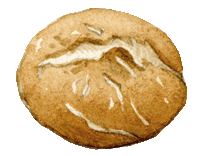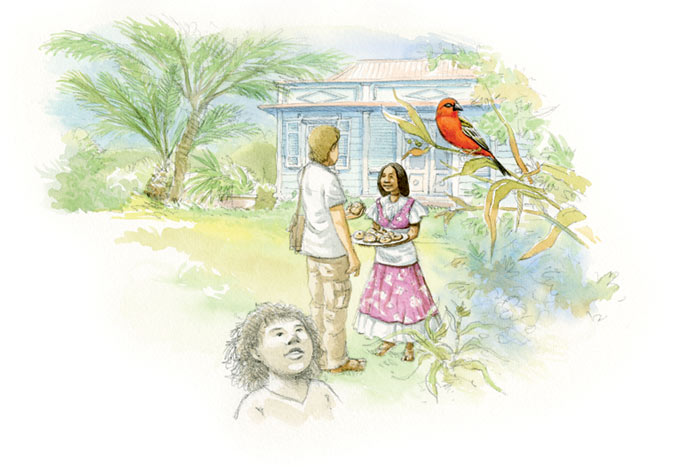Macatia

Form: BunDate of birth: Second half of 20th century
Country of origin: Reunion
What distinguishes it from other methods of bread making: Made using dough leftovers
Category of bread: (3) Reminds one of an American roll or bun, or French rolls found in restaurants, but with a sweeter flavor
Particularity: In olden days, it was bread for slaves
Ingredients: Wheat flour; salt; leaven or yeast; margarine; sugar; water

Reunion
The word “macatia”, which entered into Réunion Creole, came from the Swahili (the original language of East Africa) word mkatei, which means bread. It is traditionally said that this bread dates back to the period of slavery on the island of Bourbon, the name of the Réunion up until the time of abolition in 1848. Bourbon was a highly active place.
Another more pragmatic approach attributes the elaboration of the first macatia to the ever-present necessity of adjusting to circumstances and using the leftovers so as not to throw anything away. In this way, what was left of the previous kneading, stuck to the walls of the manual or mechanical kneader due to the impossibility of putting it in a cold room (which they only recently have gotten on the island), were thrown in the garbage or fed to the animals. Then someone had the idea of reusing these dough leftovers, which naturally made an excellent sourdough starter.
The contemporary recipe for macatia embellishes this starting point. It can be a question of starting the wheat flour and water mixture the day before and letting it rest overnight. Or the leftovers of a former kneading can be used. The next day, wheat flour, salt, fat, water and leavening are kneaded together. The dough is divided into small dough rolls of 80 g each, and they are left to rise. The addition of sugar is justified if one wants to counteract the acidity of the leavening. Macatia are baked in a medium hot oven at 220° C for 10 minutes.

